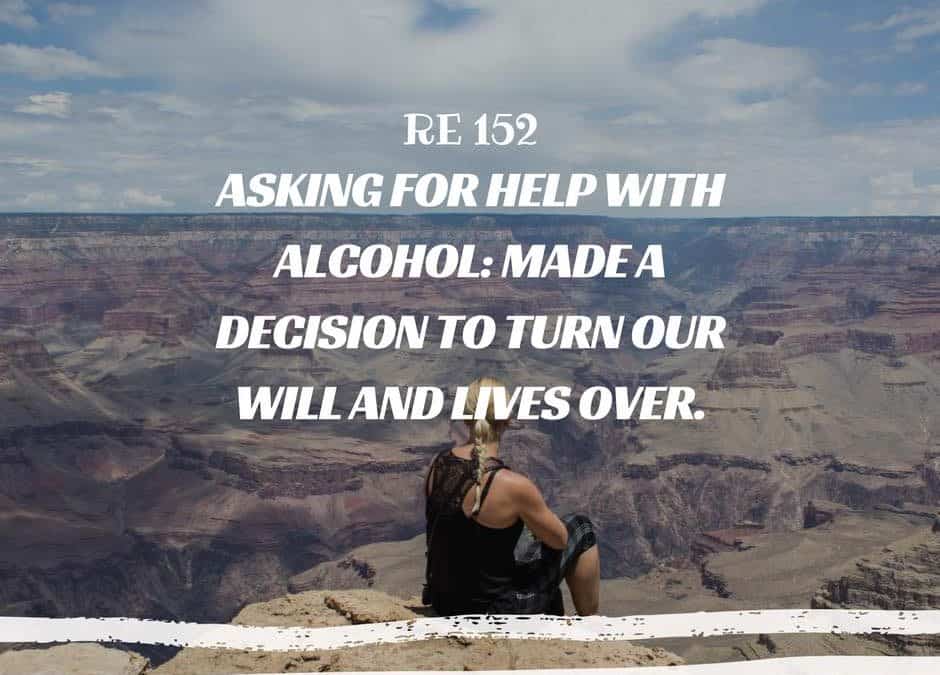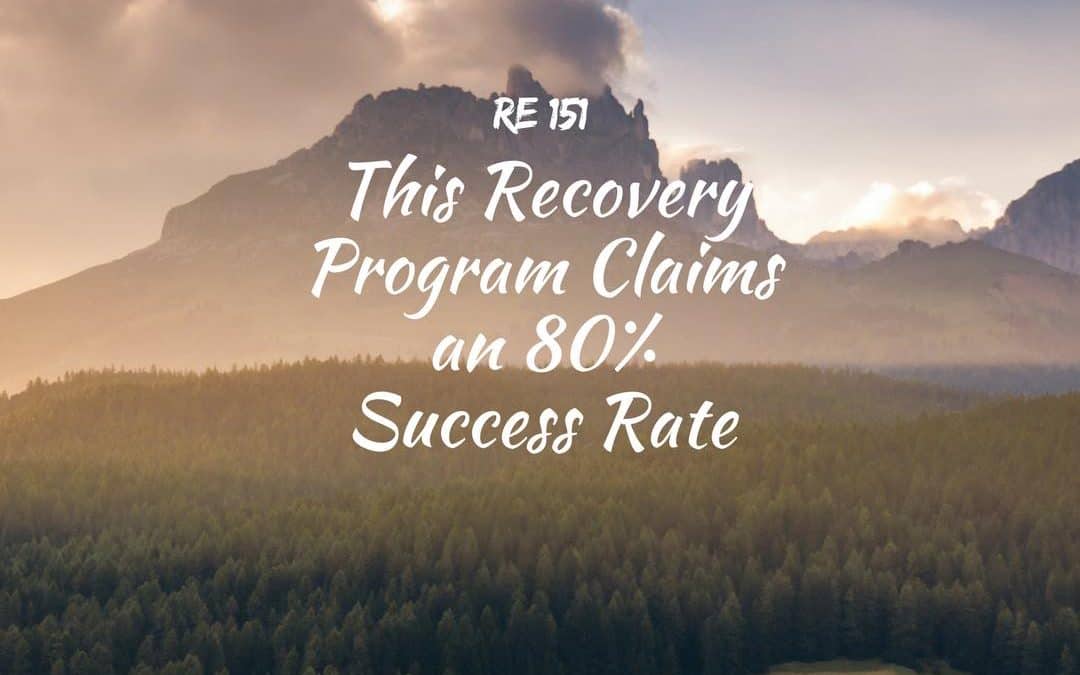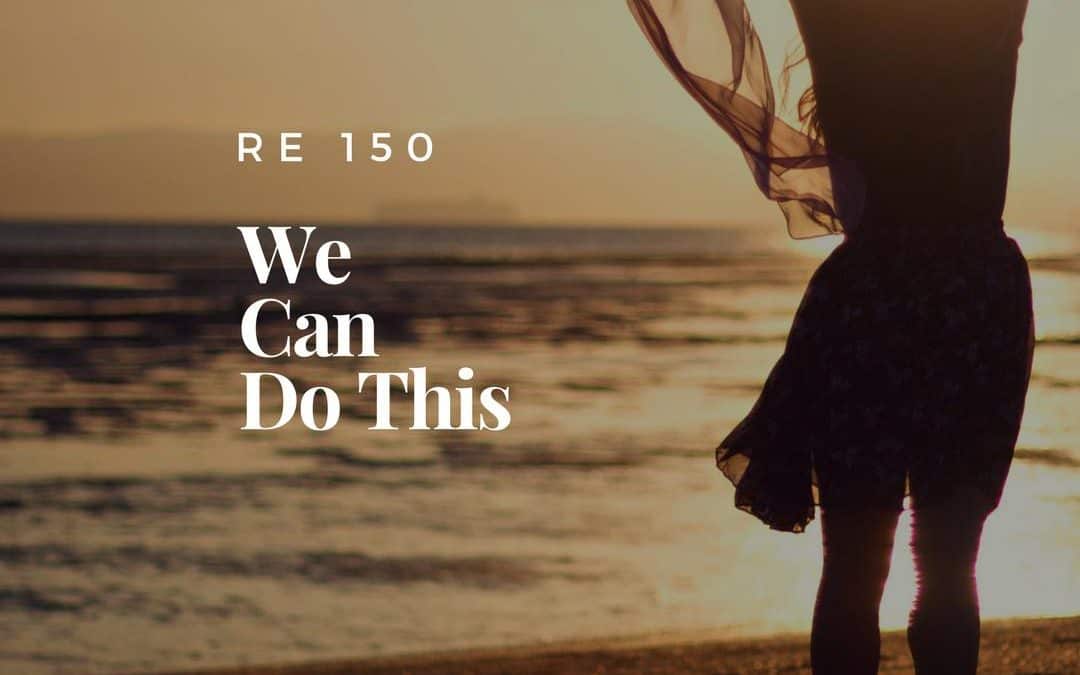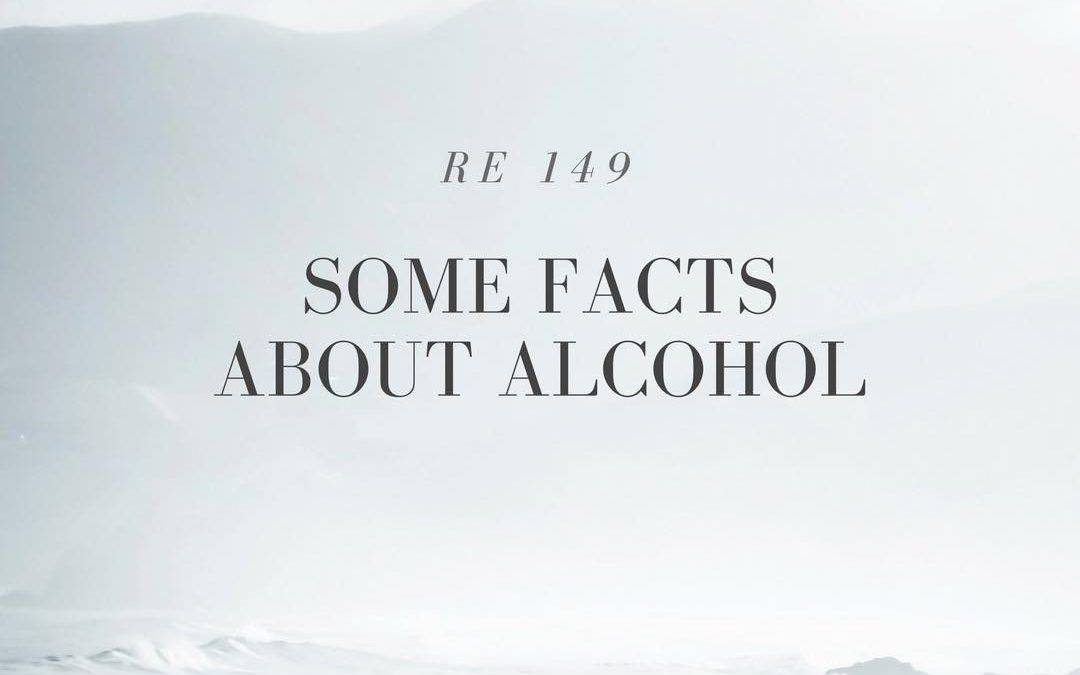
by Paul Churchill | Jan 22, 2018 | Podcast
Podcast: Play in new window | Download
Subscribe to the Recovery Elevator Podcast Apple Podcasts | | More
“Half measures availed us nothing. We stood at the turning point. We asked His protection and care with complete abandon.”
This phrase is commonly heard in 12 step meetings. When it comes to recovery, a half-hearted attempt could have disasterous results. Recovery can be confusing. Half measures might yield mediocre results in other areas of life, but due to the nature of the beast, unfortunatly the truth is that alcoholism can not be defeated while alchol is still being consumed, and thus requires one to quit drinking completely in order to successfully move forward without alcohol.
While this is true in the long run, most of us use half measures at the beginning to try and control our drinking. This is normal and, though half measures in regard to quitting drinking leads to relapse, it may also lead one to the conclusion that they have to quit completely. Sometimes the wrong train will take you to the right destination.
Zoie, with 7 months since her last drink, shares her story.
SHOW NOTES
[9:15] Paul Introduces Zoie. How long have you been sober? Who are you? What do you do for fun?
Over 7 months sober. June 1, 2017 sobriety date. Married. Louisville, KY. 23yo. Works at a freight facility. Still learning what she likes to do for fun. Has 2 dogs. Likes music, reading, cooking.
[9:40] What spurred you into sobriety?
Had a car accident while under the influence that she didn’t remember.
[12:00] Did you ever put any rules in place to try and control your drinking?
Yes. Switching types of drinks. Switched from beer to liquor to lower the quantity of drinks she consumed thinking she wouldn’t be viewed as an alcoholic. She would also force herself to run a mile for each drink she consumed.
[13:25] Before your accident, were there signs that you were drinking too much?
Many. Husband was afraid to be around her while she drank. Also, she would jokingly mention that she was an alcholic in conversation, surprising herself.
[14:45] Was this your first attempt to quit drinking after the accident?
Yes. She had a meltdown and wound up in a psychiatric hospital, was diagnosed and medicated. She tried to stop because of her medication, but she couldn’t last more than 5 days. She also lied to doctors about her drinking.
[17:45] What’s it like getting sober at your young age?
Different than others. To her, age didn’t matter. She believes she has hurt enough people and has felt enough pain for anyone at any age. Her friends still drink so she had to remove herself from her social connections.
[19:55] How did you determine which friendships to keep and which to end?
She looked at the things they did together, whether or not there was any real connection beyond alcohol. It wasn’t difficult because the stakes were high. If she couldn’t get sober, her life wouldn’t move forward in a healthy way.
[22:28] How did you get sober? Did you go to a clinic?
Both inpatient and outpatient. On her 1st day of sobriety, she checked into a detox program for 6 days. After, she attented a 5 week intensive outpatient program. This was during the first month or so of sobriety.
[23:45] What is outpatient treatment like?
Very beneficial. She says she wasn’t an easy patient. The program involved a lot of conversation and teaching, helping the patient decide what is best for the patient.
[24:37] What is your point of view on the disease concept?
She finds it helpful to know that she have a disease that can be treated. It is the answer she has been searching for. Not all decisions about health come from a doctor, one can decide for oneself. Also she isn’t alone.
[26:30] What does your recovery portfolio look like now? A day in the life.
Coffee in the morning, then playing with dogs, followed by prayers and meditations. Meditation helps a lot. AA meetings at least every other night. Reach out to support group when she needs help, which is often.
[27:35] How is it important to stay connected?
Incredibly important. There is also pain in sobriety, but more support from a community. Sobriety is only the beginning. Someone can give advice while dealing with problems.
[28:45] How did you deal with your grandmother’s passing while sober?
It was difficult. She noticed she was more present with family. She reminded herself that relapse wasn’t an option. She didn’t want to disappoint her family. “I’ve got to stay sober so I can handle this and be there for the people that need me.” The stakes were high, as she was feeling suicidal. Meetings helped. Reading helped.
[31:50] How have your coping skills improved over the past months?
I no longer jump to conclusions, then run to alcohol. I take a moment to think about and assess each situation when it arises.
[33:15] Have you experienced cravings in your sobriety? If yes, what do you do when they come?
I haven’t really had physical cravings. Mental? Yes. She is using the tools that she has been given to stay sober. The challenge for her is mental.
[34:30] Rapid Fire Round
- What was your worst memory from drinking?
One night became suicidal. Chased husband around with a knife.
- Did you ever have an “oh-shit” moment?
When husband said he was afraid to be around me while I was drinking.
- What’s your plan moving forward?
Continue doing what works. Stay in touch with other people and myself. Don’t give in and hit the F-it button.
- What’s your favorite resource in recovery?
The Big Book from AA.
- What’s the best advice you’ve ever received (on sobriety)?
Whenever times get hard, you can either a) hit the F-it button, b) fight what you’re going through head on.
- What parting piece of guidance can you give listeners who are in recovery or thinking about quitting drinking?
Go with your gut. If you think it’s time to quit it is. “You can put your shovel down whenever you want. You don’t have to keep digging your hole deeper.”
- You might be an alcoholic if…
you have a very hard time choosing between a happy and sober life or a painfully alcoholic death.
Resources mentioned in this episode:
Retreat in Machu Picchu – Retreat of a lifetime coming up in October. 17 people have signed up so far.
Connect with Cafe RE– Use the promo code Elevator for your first month free
Sobriety Tracker iTunes
Sobriety Traker Android
Sober Selfies! – Send your Sober Selfie and your Success Story to info@recoveryelevator.com
“We took the elevator down, we gotta take the stairs back up, we can do this!”

by Paul Churchill | Jan 15, 2018 | Podcast
Podcast: Play in new window | Download
Subscribe to the Recovery Elevator Podcast Apple Podcasts | | More
Paul summarizes Step 3 from the “Big Book” of Alcoholics Anonymous.
“Made a decision to turn our will and our lives
over to the care of God as we understood Him.”
Step three in a nutshell means we are asking for help. A God of our understanding can be anything. We must be convinced that a life run on self will can hardly be a success.
Jenna, with over 3 years since her last drink, shares her story
SHOW NOTES
[8:39] Paul Introduces Jenna. I live in Colorado, I work in IT, and I’m 38 and have a 10-year-old daughter. I love hiking, running, and skiing. I love to cook.
[12:38] Paul- When did you start drinking?
Jenna- I actually didn’t start drinking until I was in college. I didn’t drink in High School. The first time I drank I was 12. I discovered a bottle of alcohol, and poured it into a coke.
[21:25] Paul- What was it that led you to quit drinking?
Jenna- I had several bottoms before September of 2014. I knew alcohol wasn’t working for me, but no one knew that alcohol was the cause of my anxiety and depressing and feeling horrible.
[28:42] Paul- How liberating was it to be in that environment where your mom with nothing to hide?
Jenna- She cooked me lots of healthy food. It took me days to be able to eat. That love and being cared for was huge. She was there for me for whatever I needed.
[34:15] Paul- Talk to me about the timeline, and the patience. What do you have to say on that? It does keep getting better.
Jenna- That first year was amazing and hard at the same time. I had to learn how to do everything without alcohol in a culture where everything revolves around alcohol. Having accountability with my sponsor and my husband was huge in all of those times.
[43:21] Rapid Fire Round
- What was your worst memory from drinking? That would be when we were in Vegas for my Grandma’s 90th birthday party, and I took my daughter to the bathroom, and I got lost. I didn’t know how to get back to the restaurant and I was drunk.
- Did you ever have an “oh-shit” moment? Labor Day weekend of 2014. We were going camping. It was always my job to pack up the camper. I decided to drink before doing that, by the time we got out to the campsite 90% of what we needed was not in the camper.
- What’s your plan moving forward? I plan to keep growing personally and learning.
- What’s your favorite resource in recovery? What works for me is going to meetings, and connecting with other people.
- What’s the best advice you’ve ever received (on sobriety)? Surrender, and ask my higher power for help.
- What parting piece of guidance can you give listeners who are in recovery or thinking about quitting drinking? You can find your bottom at any time, just put down the shovel and quit digging (drinking).
- You might be an alcoholic if… when you are going through airport security your Ziploc bags of liquid shampoo bottles are filled with vodka.
Resources mentioned in this episode:
Alcoholics Anonymous “Big Book” PDF
Step 3 Pages 34-41
Connect with Cafe RE– Use the promo code Opportunity to waive the set up fee.
Sobriety Tracker iTunes
Sobriety Tracker Android
Sober Selfies! – Send your Sober Selfie and your Success Story to info@recoveryelevator.com
“We took the elevator down, we gotta take the stairs back up, we can do this!”

by Paul Churchill | Jan 8, 2018 | Podcast
Podcast: Play in new window | Download
Subscribe to the Recovery Elevator Podcast Apple Podcasts | | More
The American Medical Association recognized alcohol dependence as a disease over 55 years ago. Alcohol dependence fits the disease model because it is a dysfunctional state with characteristic form.
Use of some drugs, including alcohol, may cause dependency. The medical term for this dependency, or addiction, is Chemical Dependency. In order for a chemical to be addictive it must possess three properties. It must be: 1) mind altering or mood changing, 2) euphorigenic, and 3) reinforcing, that is taking the chemical stimulates taking more of the chemical.
Kim, with 3 days since her last drink, shares her story
SHOW NOTES
[14:29] Paul Introduces Kim. I am 43 years old, I have 2 kids, I am from Atlanta, I am a self-employed attorney. I like to walk my dog, be out in nature, and exercise. I come from a family of alcoholics.
[19:34] Paul- Did you ever put any rules into place? Like not drinking before 5:00? Tell us more about that.
Kim- I did actually. I switched to wine, I don’t know if that counts as moderating. I did cut back on the heavy stuff. I tried not drinking when I noticed the emotions were flooding. For me it’s been the amount I have been drinking when I did drink.
[32:18] Paul- We are both one of the “lucky ones” How do you feel about that?
Kim- The one thing I have that my family members don’t have is self-awareness. They are in denial. I feel very very lucky that I have been able to recognize what I am doing, and that it is a problem. At the same time it is everywhere. I see it everywhere.
[43:08] Rapid Fire Round
- What was your worst memory from drinking? Without a doubt it was that night. It was the lowest I felt in my life. I never want to be there again.
- Did you ever have an “oh-shit” moment? It was 3 days ago. We were having fun, watching football. The next thing I knew I had a beer in my hand.
- What’s your plan moving forward? Accountability is big. Actually calling somebody, I can see where reaching out can help break the cycle.
- What’s your favorite resource in recovery? Without a doubt it is the Café RE recovery group.
- What’s the best advice you’ve ever received (on sobriety)? When you are going through hell, don’t stop.
- What parting piece of guidance can you give listeners who are in recovery or thinking about quitting drinking? Don’t beat yourself up. It perpetuates in a negative way.
- You might be an alcoholic if… you actually enjoy being sick with a cold or the flu because it actually suppresses your desire to get a drink for a while.
Resources mentioned in this episode:
This podcast episode is brought to you by Zip Recruiter. Visit Ziprecruiter.com/elevator to post jobs for free.
HIMS Website- Human Intervention Motivation Study
CBS News- Rehab that Puts Alcoholic Pilots Back in the Cockpit
Connect with Cafe RE– Use the promo code Elevator for your first month free
Sobriety Tracker iTunes
Sobriety Tracker Android
Sober Selfies! – Send your Sober Selfie and your Success Story to info@recoveryelevator.com
“We took the elevator down, we gotta take the stairs back up, we can do this!”

by Paul Churchill | Jan 1, 2018 | Podcast
Podcast: Play in new window | Download
Subscribe to the Recovery Elevator Podcast Apple Podcasts | | More
It is January 1st, 2018. Today represents the start of a new year. The fact that you are listening to a podcast that is all about bettering your life sets you apart from all the rest. Addicts and alcoholics need altruistic relationships in our lives with others who do not drink.
Tricia, with 1 year since her last drink, shares her story
SHOW NOTES
[8:38] Paul Introduces Tricia. I live in Dallas Texas, I’m 36 years old, I am a Chef by trade. I like to do crafty stuff, and I like to go running.
[15:03] Paul- What was it like hitting that 1-year milestone? What was that feeling?
Tricia- 1-year felt better than my birthday. My soberversary felt so much more important than any birthday I had ever had. Having one year was 10 times that feeling of excitement and accomplishment.
[26:43] Paul- Tell us more about that.
Tricia- I can quickly compare getting sober to starting an exercise routine. Everyone wants a quick fix. That never works. There is no quick fix. You have to do the things that make you uncomfortable and are hard. You have to learn to have discipline. AA is attraction, not promotion. I can take what I want, and leave the rest.
[32:32] Paul- The majority of listeners have yet to step foot into an AA meeting. What are your thoughts on AA? What light can you shed upon the 12-step process?
Tricia- I have a lot of opinions on AA. It’s a place where you can meet people in real life. We all have the same disease. It is neat to meet people who get you. I love that part about AA. There are 2 parts to AA: Going to meetings, and working the 12 steps. If you just go to meetings and you don’t do the steps you are missing out.
[36:42] Paul- Tell us a little about the retreat and what you learned from it.
Tricia- I signed up early for the retreat as an incentive to stay sober. The retreat in Montana was an adult experience kind of like camp. Creating relationships with people who are just like you. Everyone was so vulnerable right away. It was magical. You had to be there to know.
Rapid Fire Round
- What’s the best advice you’ve ever received (on sobriety)? Start right now. There is no right time, do it now. It just gets harder the longer you wait. You can’t do this alone, if you could, you would have done it by now.
- You might be an alcoholic if…you are always scheduling your day around your drinking. Everything has a hard stop at 4:00 or 5:00 so you gotta start drinking. You know exactly how many ice cubes are in everyone’s glasses because you watched Mad Men drunk.
- What’s on your bucket list? I am going to be a speaker at the Dallas Meet-up. I really would like to do more speaking engagements. I am looking forward to the Peru trip.
Resources mentioned in this episode:
Gourmaleo – Dallas based Paleo food delivery service
Connect with Cafe RE– Use the promo code Opportunity to waive the set up fee.
Sobriety Tracker iTunes
Sobriety Traker Android
Sober Selfies! – Send your Sober Selfie and your Success Story to info@recoveryelevator.com
“We took the elevator down, we gotta take the stairs back up, we can do this!”

by Paul Churchill | Dec 25, 2017 | Podcast
Podcast: Play in new window | Download
Subscribe to the Recovery Elevator Podcast Apple Podcasts | | More
Facts about Alcohol: Less than 20% of people with alcohol abuse disorders actually seek treatment for their disease. Excessive alcohol consumption costs the U.S. economy an estimated 250 billion dollars in lost productivity according to a study from 2010. Alcoholic’s Anonymous success rates vary depending on the source.
Makenzee, with 1 year since her last drink, shares her story
SHOW NOTES
[12:05] Paul Introduces Makenzee. I am from Boise Idaho. I am 23 years old and I work in the emergency department at the hospital. I love crafting, and fitness and nutrition. I got married 9 months ago.
[13:15] Paul- When did you first realize you had a problem with alcohol?
Makenzee- I had a constant build up of sickness and hangovers on my days off. I started to realize that my hobbies didn’t exist anymore. I wasn’t really present in the moment. It was miserable.
[16:57] Paul- 13 days ago, did you have a rock bottom moment? Tell us why you quit drinking.
Makenzee- It was hard to say one specific thing happened. I was excruciatingly hung-over 13 days ago. It lasted about two and half days. I was going through some physical withdrawals.
[25:22] Paul- Let’s back up to Day 1,2, 3, 4, 5, how have you gotten this far?
Makenzee- Days 1,2,3,4,5 were… I’m not going to sugar coat it, absolute hell. My body was physically aching. I had a hard time wrapping my head around the situation. Yesterday was the first day I did not feel miserable. It was very difficult the first few days.
[31:36] Paul- What have you learned most about yourself over these past 13 days?
Makenzee- I’m actually a good person. I beat myself up a lot. I realized everyone is not going to like me. But I like me, and I am comfortable in my own skin.
[36:52] Rapid Fire Round
- What was your worst memory from drinking? Blacking out after my husband face timed me from overseas, and not remembering talking to him.
- Did you ever have an “oh-shit” moment? Waking up after our wedding night and not remembering the last half of it.
- What’s your favorite resource in recovery? Café RE, and self-care.
- What’s the best advice you’ve ever received (on sobriety)? Facing it is the only way to overcome it.
- What parting piece of guidance can you give listeners who are in recovery or thinking about quitting drinking? Rip it off like a Band-Aid. It’s terrifying; it hurts like hell, but just do it. Your life will flourish.
- You might be an alcoholic if… you buy a plane ticket to Vegas instead of paying for a lawyer for your DUI.
Resources mentioned in this episode:
Recovery Elevator in Dallas January Social
Connect with Cafe RE– Use the promo code Opportunity to waive the set up fee.
Sobriety Tracker iTunes
Sobriety Tracker Android
Sober Selfies! – Send your Sober Selfie and your Success Story to info@recoveryelevator.com
“We took the elevator down, we gotta take the stairs back up, we can do this!”







